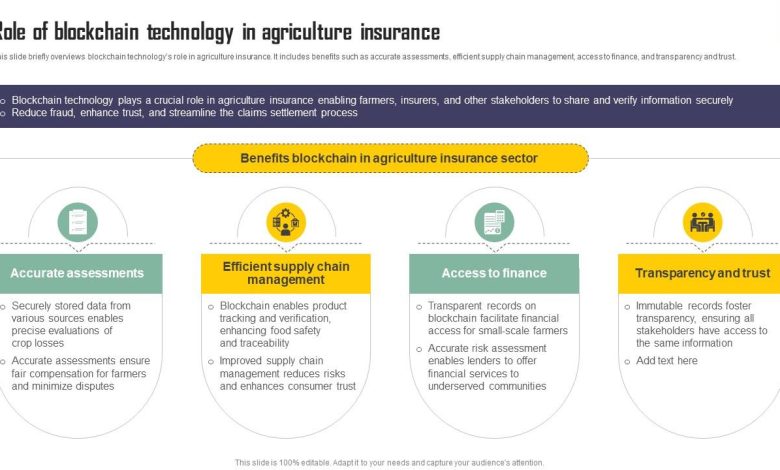Exploring Blockchain’s Impact on Supply Chain Management

- Understanding the Basics of Blockchain Technology
- Benefits of Implementing Blockchain in Supply Chain Management
- Challenges and Limitations of Blockchain in Supply Chain
- Real-world Examples of Blockchain Transforming Supply Chains
- Future Trends and Innovations in Blockchain for Supply Chain Management
- Key Considerations for Companies Looking to Adopt Blockchain in Supply Chain
Understanding the Basics of Blockchain Technology
Blockchain technology is a revolutionary concept that has the potential to transform various industries, including supply chain management. Understanding the basics of blockchain is crucial to grasp its impact on supply chains.
**Decentralization**: One of the key features of blockchain is its decentralized nature. This means that there is no central authority controlling the network. Instead, transactions are verified by a network of computers (nodes) spread across the globe. This decentralization ensures transparency and security in supply chain transactions.
**Immutable Ledger**: Another important aspect of blockchain is its immutable ledger. Once a transaction is recorded on the blockchain, it cannot be altered or deleted. This feature ensures the integrity of the supply chain data, making it tamper-proof and trustworthy.
**Smart Contracts**: Blockchain technology also enables the use of smart contracts, which are self-executing contracts with the terms of the agreement directly written into code. Smart contracts automate and enforce the execution of agreements, streamlining processes and reducing the need for intermediaries in the supply chain.
**Transparency and Traceability**: Blockchain provides transparency and traceability in supply chains by allowing all parties involved to track the movement of goods from the point of origin to the final destination. This visibility helps in identifying inefficiencies, reducing fraud, and ensuring compliance with regulations.
**Enhanced Security**: The cryptographic algorithms used in blockchain technology ensure high levels of security for supply chain data. Each block in the chain is linked to the previous one using cryptographic hashes, making it nearly impossible for malicious actors to alter the information stored on the blockchain.
In conclusion, understanding the basics of blockchain technology is essential for realizing its potential in revolutionizing supply chain management. Its decentralized nature, immutable ledger, smart contracts, transparency, traceability, and enhanced security make blockchain a game-changer for the supply chain industry.
Benefits of Implementing Blockchain in Supply Chain Management
Implementing blockchain technology in supply chain management offers a wide range of benefits that can revolutionize the way businesses operate and collaborate. By leveraging blockchain, companies can enhance transparency, traceability, and security throughout the entire supply chain process. This innovative technology enables real-time tracking of goods, which helps in reducing the risk of fraud, counterfeiting, and errors in documentation.
One of the key advantages of blockchain in supply chain management is its ability to create a decentralized and immutable ledger that stores all transactions securely. This ensures that all parties involved in the supply chain have access to the same information, leading to increased trust and efficiency in the system. Additionally, blockchain can streamline processes such as inventory management, procurement, and payments by automating tasks and eliminating the need for intermediaries.
Another significant benefit of implementing blockchain in supply chain management is the potential cost savings it can bring to businesses. By reducing manual processes, paperwork, and the need for third-party verification, companies can lower operational costs and improve overall profitability. Moreover, blockchain can help in optimizing inventory levels, minimizing waste, and enhancing overall supply chain visibility.
Furthermore, blockchain technology can improve compliance with regulations and standards by providing a transparent and auditable record of all transactions. This can be particularly beneficial for industries with strict regulatory requirements, such as pharmaceuticals, food, and electronics. By ensuring data integrity and authenticity, blockchain can help companies demonstrate compliance and mitigate risks associated with non-compliance.
In conclusion, the implementation of blockchain in supply chain management can lead to a more efficient, secure, and transparent ecosystem for businesses. By harnessing the power of this transformative technology, companies can gain a competitive edge, build trust with partners and customers, and drive innovation in the supply chain industry. Embracing blockchain is not just a trend but a strategic move towards a more sustainable and resilient supply chain infrastructure.
Challenges and Limitations of Blockchain in Supply Chain
While blockchain technology has the potential to revolutionize supply chain management, it also comes with its own set of challenges and limitations that need to be addressed. Some of the key challenges include:
- Scalability: One of the main challenges facing blockchain in supply chain management is scalability. As the number of transactions increases, the blockchain network can become slow and inefficient.
- Interoperability: Another challenge is the lack of interoperability between different blockchain platforms. This can make it difficult for different parties in the supply chain to communicate and share information effectively.
- Security: Despite being touted as a secure technology, blockchain is not immune to security breaches. There have been instances of hacking and fraud in blockchain networks, which can compromise the integrity of supply chain data.
- Regulatory issues: The regulatory environment surrounding blockchain technology is still evolving, which can create uncertainty for businesses looking to implement blockchain in their supply chains.
These challenges highlight the need for careful planning and consideration when implementing blockchain in supply chain management. While blockchain has the potential to streamline processes and increase transparency, it is important to be aware of the limitations and work towards addressing them to fully realize the benefits of this technology.
Real-world Examples of Blockchain Transforming Supply Chains
Blockchain technology has been making significant strides in transforming supply chains across various industries. Here are some real-world examples of how blockchain is revolutionizing supply chain management:
- **Food Safety:** Walmart has implemented blockchain to track the journey of its food products from farm to shelf. This ensures transparency and traceability, helping to quickly identify and address any food safety issues.
- **Pharmaceuticals:** The pharmaceutical industry is using blockchain to combat counterfeit drugs. By recording each step of the supply chain on a blockchain, companies can verify the authenticity of medications and prevent the distribution of fake products.
- **Automotive:** BMW is utilizing blockchain to track the origin of spare parts used in its vehicles. This helps in ensuring the quality of components and detecting any potential defects early in the supply chain process.
- **Fashion:** Luxury brands like Louis Vuitton are leveraging blockchain to authenticate products and combat the proliferation of counterfeit goods. By providing customers with a transparent record of the product’s journey, brands can enhance trust and brand loyalty.
- **Logistics:** Maersk, the world’s largest shipping company, has partnered with IBM to create a blockchain platform for managing global trade. This platform streamlines documentation processes, reduces paperwork, and enhances the efficiency of supply chain operations.
These examples demonstrate the diverse applications of blockchain technology in supply chain management, showcasing its potential to improve transparency, traceability, and efficiency throughout the supply chain ecosystem.
Future Trends and Innovations in Blockchain for Supply Chain Management
Blockchain technology is revolutionizing supply chain management by providing transparency, security, and efficiency in tracking goods from their origin to the final destination. As we look towards the future, there are several trends and innovations in blockchain that are set to further enhance supply chain management processes.
One of the key trends in blockchain for supply chain management is the integration of Internet of Things (IoT) devices. By combining blockchain with IoT sensors, companies can create a more interconnected and automated supply chain network. This integration allows for real-time tracking of goods, ensuring greater visibility and traceability throughout the entire supply chain.
Another emerging trend is the use of smart contracts in blockchain for supply chain management. Smart contracts are self-executing contracts with the terms of the agreement directly written into code. By utilizing smart contracts, companies can automate various processes such as payments, compliance, and quality control, streamlining operations and reducing the risk of errors or fraud.
Furthermore, blockchain technology is enabling the development of decentralized supply chain networks. These networks operate on a peer-to-peer basis, eliminating the need for intermediaries and reducing costs associated with traditional supply chain management. Decentralized networks also enhance trust and security, as all transactions are recorded on the blockchain and cannot be altered or tampered with.
In addition, blockchain is facilitating the implementation of sustainability practices in supply chain management. By utilizing blockchain technology, companies can track the environmental impact of their supply chain operations, ensuring compliance with regulations and promoting ethical sourcing practices. This transparency allows consumers to make more informed purchasing decisions, driving demand for sustainable products.
Overall, the future of blockchain in supply chain management is promising, with continued advancements and innovations set to transform the industry. By embracing these trends and leveraging blockchain technology, companies can optimize their supply chain processes, improve efficiency, and gain a competitive edge in the market.
Key Considerations for Companies Looking to Adopt Blockchain in Supply Chain
When considering the adoption of blockchain technology in supply chain management, companies must take into account several key factors to ensure a successful implementation. These considerations can help organizations navigate the complexities of integrating blockchain into their existing systems and processes.
- Transparency: Blockchain technology offers a high level of transparency by providing a secure and immutable record of transactions. This transparency can help companies track products throughout the supply chain, ensuring authenticity and reducing the risk of fraud.
- Security: One of the main advantages of blockchain is its robust security features. By using cryptographic algorithms and decentralized networks, blockchain can protect sensitive supply chain data from cyber threats and unauthorized access.
- Efficiency: Blockchain has the potential to streamline supply chain processes by automating manual tasks, reducing paperwork, and eliminating intermediaries. This can lead to cost savings and faster transaction times.
- Traceability: With blockchain, companies can trace the origins of products and raw materials, enabling them to verify the authenticity and quality of goods. This can be particularly useful in industries where traceability is crucial, such as food and pharmaceuticals.
- Collaboration: Blockchain technology facilitates collaboration among supply chain partners by providing a shared platform for data exchange. This can improve communication, coordination, and trust between stakeholders.
By considering these key factors, companies can make informed decisions about adopting blockchain in their supply chain operations. While blockchain offers many benefits, it is essential for organizations to carefully evaluate their specific needs and challenges before implementing this technology. With the right strategy and approach, blockchain can revolutionize supply chain management and drive innovation in the industry.



